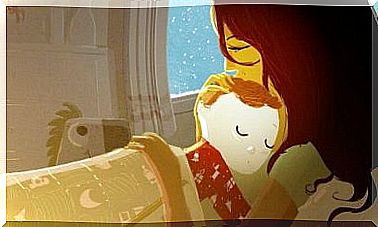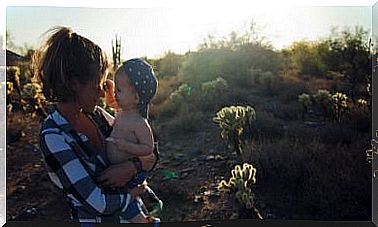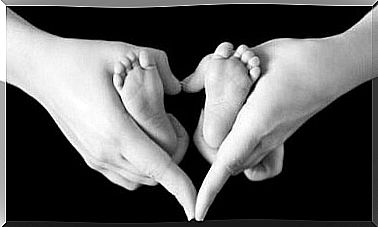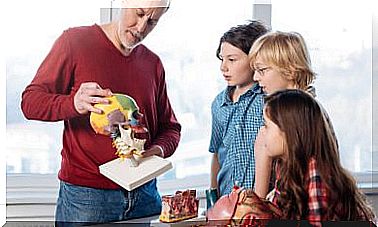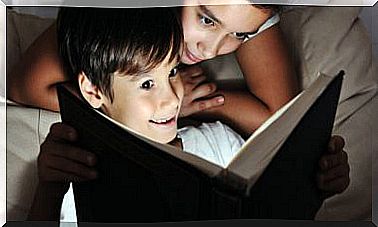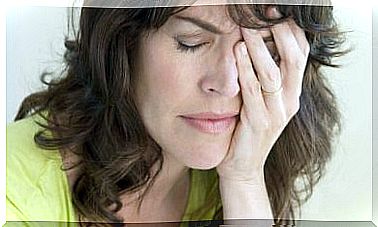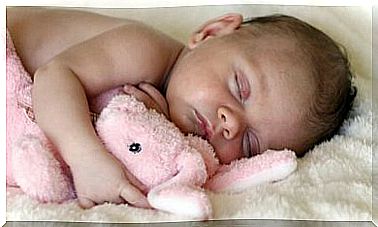That Terrible Moment When Your Baby Falls For The First Time
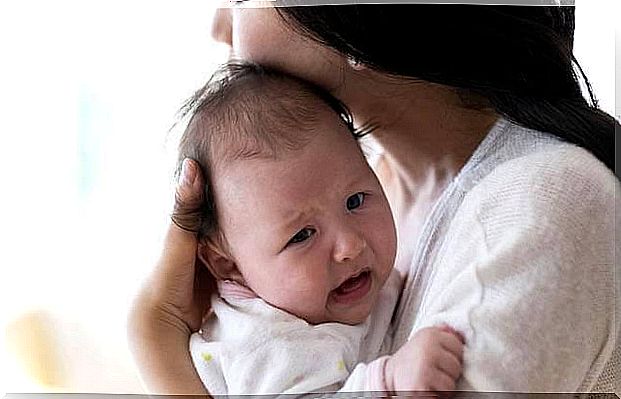
Often happens. Every mom remembers that day when our baby first dropped. A little carelessness in the crib, leaving them in bed for a minute or even falling asleep with them in our arms, are usually the most common situations. However, in 90% of cases these falls are harmless.
Now, however harmless the fall may be, it does not prevent us from being left with a bitter sense of guilt and intense fear. Has he suffered an injury? Do I have to go to the ER? It is clear that if you have any questions and to rule out problems, the best thing to do is go to the emergency room.
Nevertheless, it is worth following a series of basic indicators that can help us . Today in our space we want to discuss with you the delicate issue of falls, reminding you above all that these small oversights do not determine at all that you are a bad mother. We can never 100% prevent what can happen, and although we are always giving 200% of ourselves, this kind of thing usually happens.
The baby that falls for the first time from the bed, crib or arms
Most commonly, babies fall out of cribs or out of bed. Dads and moms who practice co-sleeping often have these types of small accidents on occasion.
Without knowing how, the boy turns around and we hear a knock. The fall is not usually very high, but even so, it does not prevent us from feeling like “the worst parents in the world.” Likewise, exchangers are also another risk scenario.
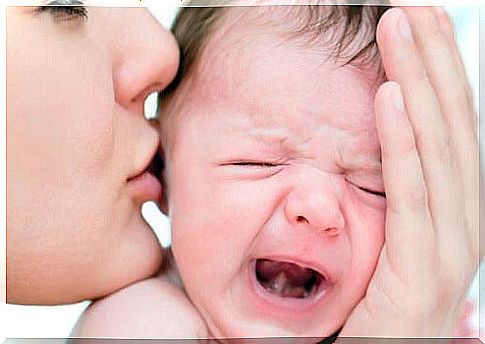
We reach out for a diaper and the baby rolls over and falls. Likewise, many babies also arrive in the emergency department who have fallen from their mothers’ arms in a very small moment in which they have fallen asleep on the sofa or bed, and the baby “slips” out of the lap. Nor can we forget the always dangerous cradles when our children, from one day to the next, become skilled climbers.
Falls are common, but usually we do not have to see it as something normative. 6% of the deaths of children under 3 years of age are precisely due to falls. We have to be very attentive at home, remembering that taking care of babies is everyone’s responsibility. Parenting demands the maximum of us as mothers, and it is necessary that we receive daily support.
Indicators to look out for after a fall
When the baby falls we panic. It is normal and understandable. However, we need to act calmly to take the best care of our children.
- If the child falls to the ground and cries and moves, it is already a good sign. Sometimes it is said that children “are made of rubber”, but we must never trust ourselves in the face of this type of stereotype. The first thing you should attend to is if the child bleeds or if he loses consciousness after falling to the point of not being able to wake him up.
- If you see that a bump comes out instantly, it is always worth going to the emergency room to rule out any problem.
- If the child bleeds from one ear through the nose, it is necessary to call the emergency room because it is a symptom of trauma.
- If you see that your baby moves, cries and does not fall asleep and it seems that he is normal, the only thing you should take care of is that he does not vomit. If after a few minutes or hours he begins to vomit, call the emergency room.
- The greatest risk of a baby falling is the height and position in which they have reached the ground. Sometimes a simple fall from the crib or bed can be serious if the baby falls on his head.
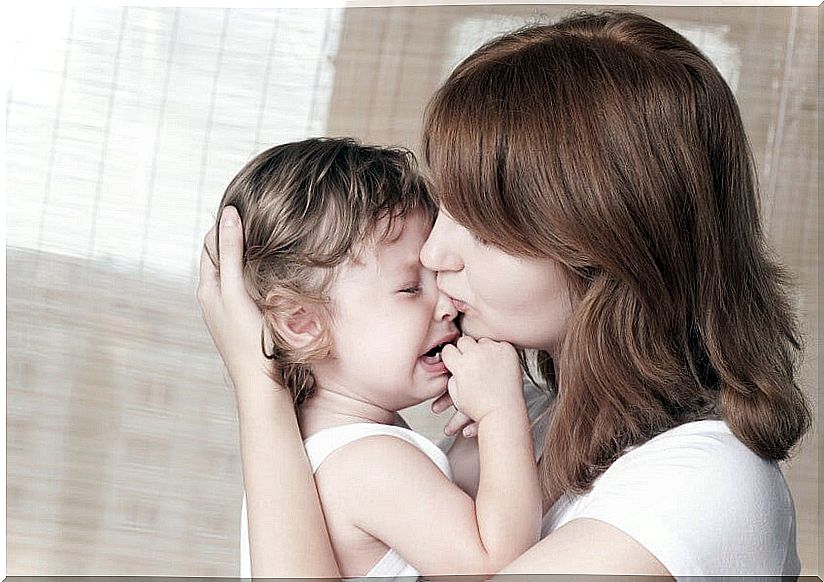
Everyday aspects that we must take care of to prevent babies from falling
The greatest danger we have with our children is when they can turn around. We put them on their backs to change their diapers and they suddenly turn around. We leave them in bed for a second protected with cushions to go for a piece of clothing and the second, he turns around and falls.
The most complicated thing is that we can never predict when they already have this motor maturity to turn around, but it is something that we must control and monitor. Likewise, it is important that we take into account these details:
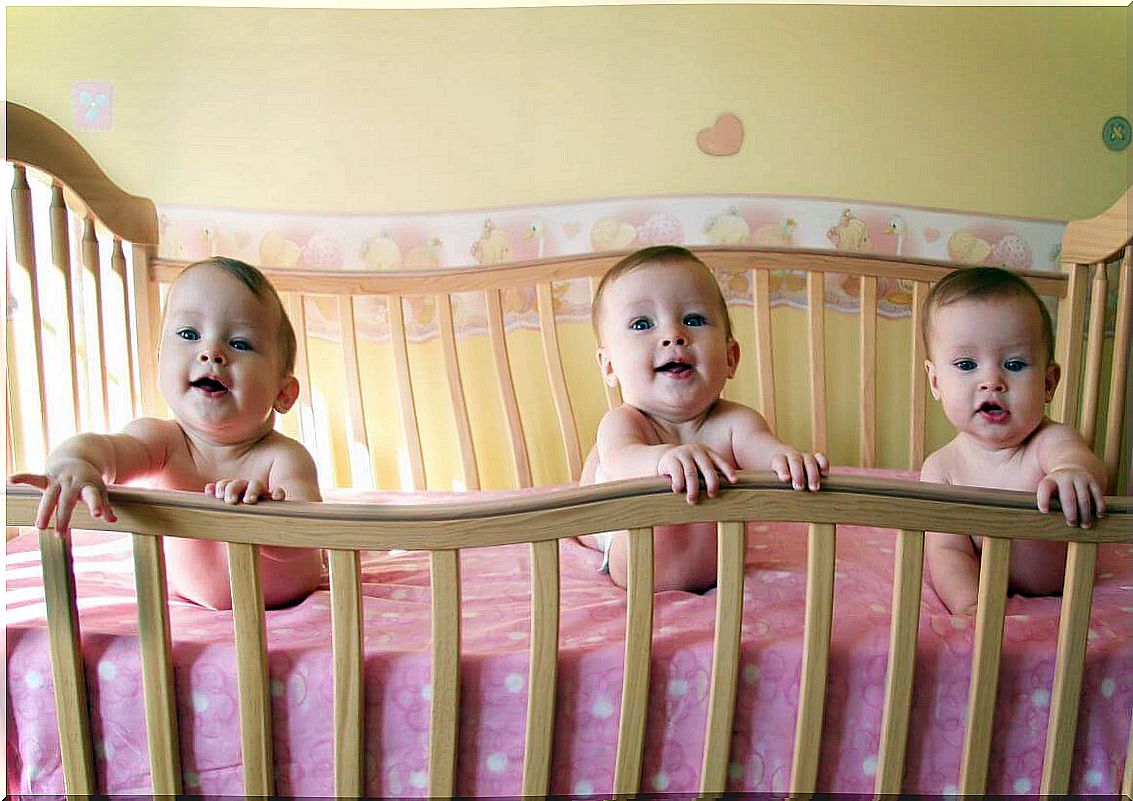
- Make sure that the crib bars are no more than three inches apart.
- When you walk with your baby in your arms, be very careful with rugs and uneven floors.
- You should not leave the baby alone in an armchair, on the bed, or on the changing table.
- Be careful when you go upstairs with your child.
- High chairs and cribs should be away from windows and stairs.
- If you feel too tired to breastfeed or bottle your child, delegate this role to your partner or someone else.
To conclude, it is clear that we cannot control 100% everything that surrounds our children. However, to prevent there is nothing better than being always very present in everything we do . Try to prevent thinking things like “if I lower the bars of the crib a little it is possible that …”, “if I leave it for a second on the sofa it is possible that …”
Nothing happens if we “sin” of obsession during the first 3 years of a baby’s life. During this time is when more accidents tend to children.
